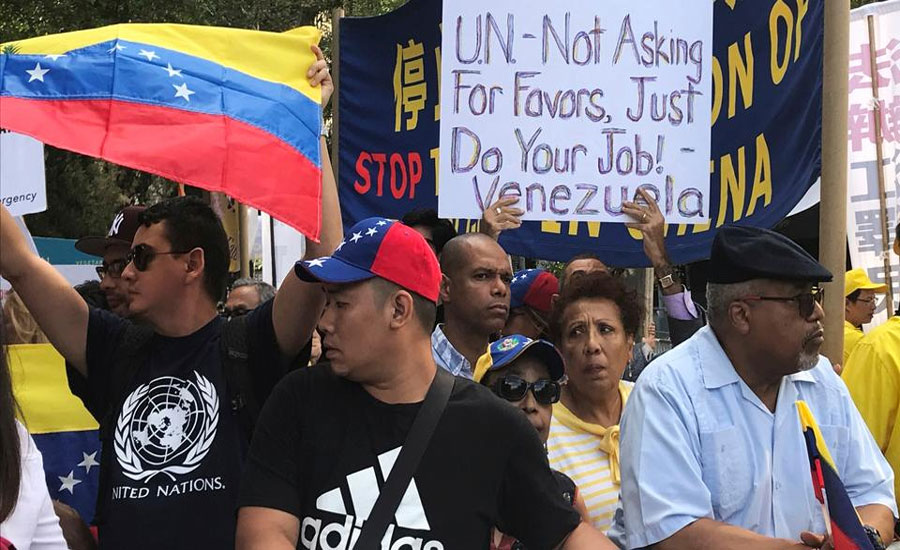UN begins probe into killings, alleged torture in Venezuela

NEW YORK - The United Nations Human Rights Council agreed on Friday to set up an international fact-finding mission to document violations in Venezuela, including alleged torture and thousands of summary executions.
Venezuela's ambassador Jorge Valero rejected the "hostile resolution" - brought by countries including Argentina, Brazil, Chile, Colombia and Peru which are hosting millions of Venezuela's migrants and refugees - as being part of a campaign led by the United States.
"This small group follows to a tee instruments handed to them by the American empire, these are shameful subjects of administration of President Trump," Valero told the talks.
The Geneva forum adopted the text from the Lima Group by a vote of 19 in favour and seven against with 21 abstentions on the last day of a three-week session. The 12-nation Lima Group and most western nations have recognised Venezuelan opposition leader Juan Guaido as the country's legitimate leader. Guaido invoked the constitution in January to declare himself interim president, calling President Nicolas Maduro's 2018 re-election "illegitimate". Maduro, who maintains the support of Cuba, Russia and China, as well as most state institutions, has accused Guaido and the US of attempting a coup. "We believe serious and credible steps for accountability are needed. And these steps cannot be found inside Venezuela," said Brazil's ambassador Maria Nazareth Farani Azevedo. The resolution condemned "widespread targeted repression and persecution" through what it called the excessive use of force against peaceful protesters, the closing down of media and the erosion of the rule of law. UN human rights chief Michelle Bachelet, in a report issued on July 4 after her visit to the Andean country, said that Venezuelan security forces were sending death squads to murder young men staging the scenes to make it look like the victims resisted arrest. Government figures showed that deaths ascribed to criminals resisting arrest numbered 5,287 last year and 1,569 by May 19 this year. The UN report said the figures were "shockingly high" and many of them appeared to be extrajudicial executions. Maduro's government has called the UN report a "selective and openly partial vision" about the situation. The resolution expressed "grave concern at the fact that there have been at least 6,000 killings resulting from security operations in the Bolivarian Republic of Venezuela since January 2018 and that, according to information analysed by the High Commissioner, many of these killings may constitute extrajudicial executions". It condemned arbitrary detentions and enforced disappearances carried out by security forces, such as the Fuerzas de Acciones Especiales (Special Action Forces), also known as FAES, and pro-government civilian armed groups. At least 3.7 million Venezuelans are "malnourished" amid shortages of food, vaccines and access to healthcare, the resolution said. "The action by the Human Rights Council sends a clear message to the Venezuelan authorities that they will eventually be held accountable for their crimes," Jose Miguel Vivanco of Human Rights Watch said in a statement.
SOURCE: NEWS AGENCIES







